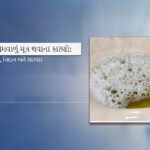Kidney stones are not only painful but also likely to reappear without proper care. The role of diet in prevention is crucial and often underestimated. Here, Dr. Dushyant Pawar, a leading Urologist in Ahmedabad, shares practical and natural dietary tips to help you lower your chances of developing kidney stones in the future.
Table of Contents
What are kidney stones, and why does diet matter
Kidney stone diet plays a crucial role in both preventing and managing kidney stones. These stones are hard mineral deposits, often made of calcium oxalate, that form inside the kidneys when certain substances in the urine—such as oxalate, calcium, or sodium—become too concentrated. When urine is imbalanced or too concentrated, the likelihood of crystal formation rises.
Your daily food and fluid choices directly influence this process. The type of beverages you consume, as well as the intake of calcium, oxalates, sodium, animal protein, and certain supplements, can all impact your risk of kidney stones. By following a well-balanced kidney stones diet, you can reduce these risks naturally. The following ten dietary tips are simple, research-based, and practical steps you can adopt in your everyday routine.
Top 10 Natural Diet Tips for Kidney Stone Prevention
- Stay very well hydrated
Water is your best friend. Drinking enough dilutes your urine, making it harder for crystals to clump together. Aim for at least 2 to 3 liters of water daily, more if you’re physically active or live in a warm climate. If plain water is difficult, add slices of lemon, lime, or a splash of citrus juice to increase fluid intake and helpful citrate levels. - Limit sodium intake
A high-salt diet increases urinary calcium, which can trigger stone formation. Reducing processed foods, avoiding adding too much table salt, and being mindful of sodium content on food labels help. The target is roughly 2300 mg or less of sodium per day, but this may need adjustment depending on individual risk. - Include adequate calcium from food
It might seem counterintuitive, since many stones are calcium-based, but dietary calcium binds with oxalate in your intestines and prevents it from entering urine. Good sources include dairy products, calcium-fortified foods, beans, seeds, kale, and other leafy greens. Try to get 1000-1200 mg of calcium per day through your diet rather than from high-dose supplements. - Moderate animal protein
Too much animal protein (red meat, poultry, fish, eggs) increases acid load, which can raise calcium excretion and lower urine citrate. You don’t need to become a vegetarian, but limiting portions (for example, to a serving size comparable to a deck of cards or about 6-8 oz cooked meat) can help. - Eat plenty of fruits and vegetables
These are excellent sources of potassium and citrate, which help reduce stone formation. Their fiber content also helps. Try to include a variety of colorful vegetables and fresh fruits every day. This not only supports kidney health but also has broad benefits for blood pressure and general well-being. - Watch oxalate-rich foods, but don’t eliminate them unnecessarily
Foods high in oxalate (spinach, beets, nuts, rhubarb, some grains) can contribute to calcium-oxalate stones. But rather than cutting them out completely, pair them with dairy (or other calcium sources) so that some of the oxalate gets bound in the gut and excreted as waste rather than in urine. Also, they hydrate well when consuming them. - Be cautious with high-dose vitamin C supplements
Vitamin C from food sources is generally safe and healthy. But large doses of supplemental vitamin C (e.g., 1000 mg/day or more) have been linked with increased risk of stones in some studies, especially in men. If you use vitamin C supplements, keep amounts moderate as per the recommended daily intake. - Cut down on sugary drinks and excess sugar
While salt, oxalate, and calcium often get the most attention, sugar can also play a hidden role in raising the risk of kidney stones. Sugary drinks, processed foods, and sweetened juices may contribute indirectly by promoting obesity, metabolic imbalances, and increased urinary calcium and oxalate levels. Cutting down on added sugars can significantly lower this risk. - Limit excessive caffeine and certain herbal/tea oxalates
Some teas have high oxalate content; similarly, certain herbal infusions may worsen stone risk in susceptible individuals. Moderate caffeine contributes to fluid intake, but very high caffeine, especially from sodas/energy drinks, may have negative side effects. Choose drinks wisely; herbal or green teas are better than high-oxalate ones if you’re prone. - Follow a balanced, whole foods-based diet
Dietary patterns such as the Mediterranean diet or DASH (Dietary Approaches to Stop Hypertension) tend to perform well in studies of kidney stone prevention. These emphasize whole grains, legumes, lean proteins, fruits, vegetables, healthy fats, and minimal processed foods. Such a diet naturally balances calcium, oxalate, protein, sodium, and fluid, helping to protect kidney health in the long run.
Personalisation, Monitoring, and Doctors’ Guidance
Every person’s stone risk is different. Individual risk factors such as family history, the type of stones previously formed, kidney health, urine composition, and other existing medical conditions can influence which dietary tips are most effective. Dr. Dushyant Pawar advises that anyone who has experienced kidney stones should have a thorough metabolic evaluation, including urine testing, blood analysis, and examination of any stones that have been passed. This helps tailor the diet plan most appropriate to the individual.
Also, changes should be gradual. Suddenly, drastic cuts (e.g., eliminating entire food groups or huge fluid shifts) may backfire or be hard to sustain. The goal is long-term consistency.
Summary
To prevent kidney stones, naturally hydrate well, eat enough calcium (from food), limit salt and excessive animal protein, monitor oxalate intake, use fruits and vegetables, be mindful about supplements, reduce sugar, and follow a balanced, whole-foods diet. With patience and awareness, many stone recurrences can be avoided.
If you’re concerned about kidney stone prevention or have already had one, reach out to Dr. Dushyant Pawar for personal advice and evaluation. Dietary changes, though simple in principle, are most effective when customized to your individual risk factors. Stay hydrated, eat wisely, and take care of those kidneys!



